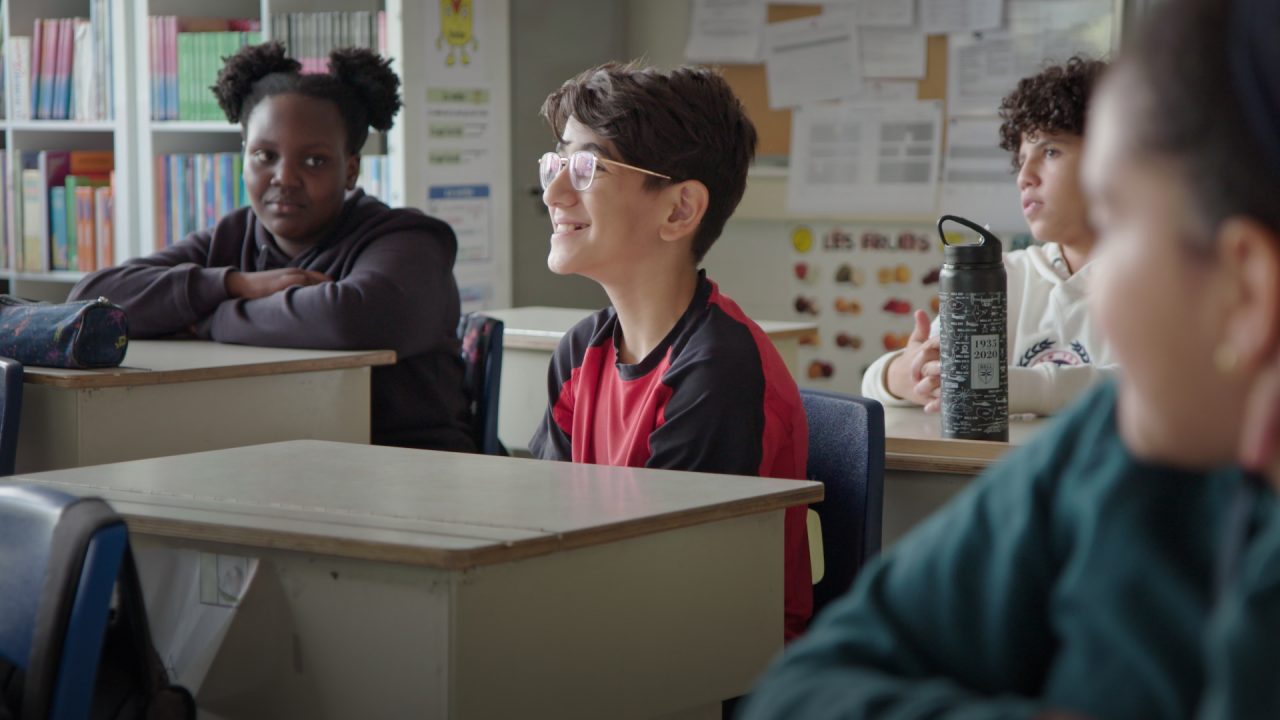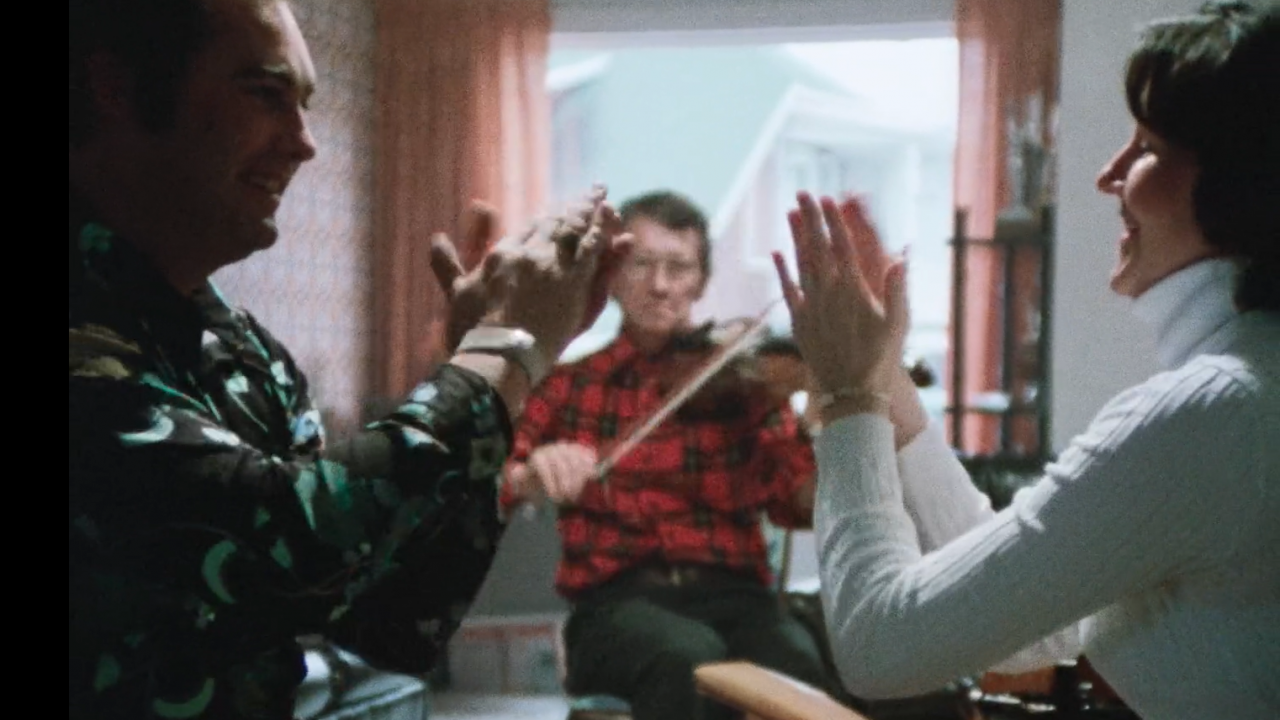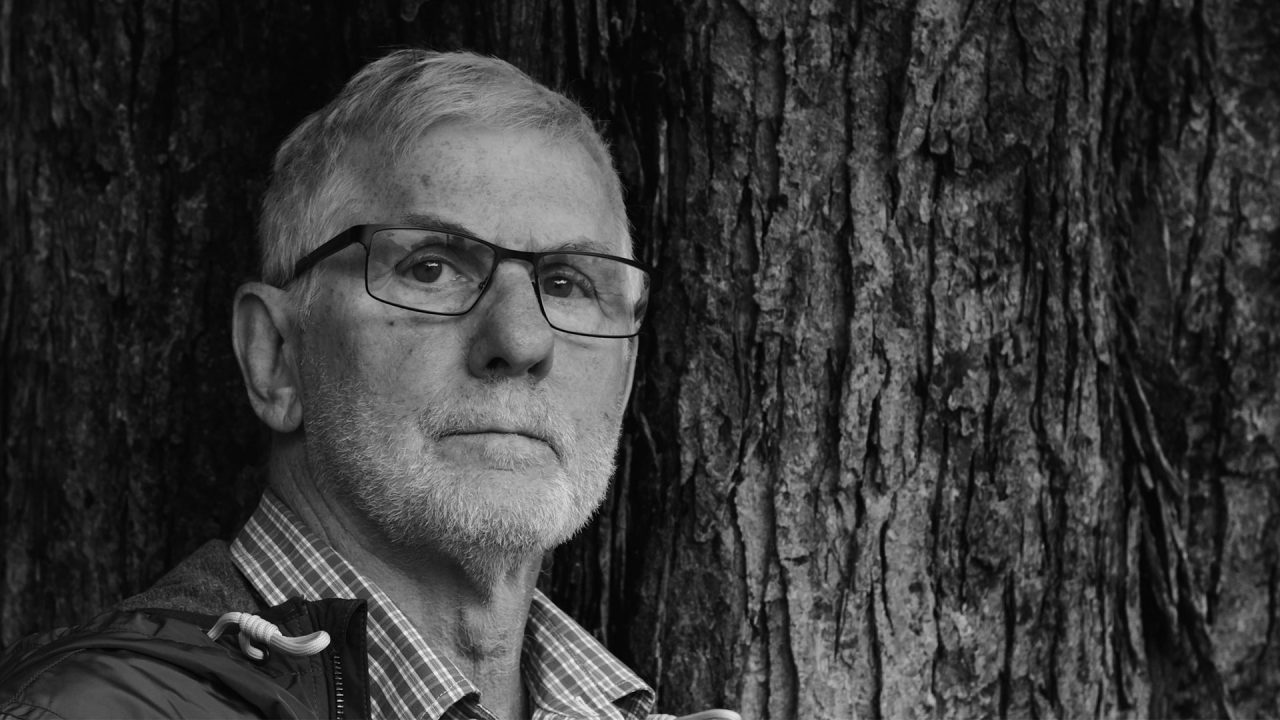
Higher Learning | Unspoken Tears
Higher Learning | Unspoken Tears
War Trauma, Loss and Pain in Our Schools: Supporting Refugee and Asylum-Seeking Students
In recent years, Quebec has taken in many children of refugees and asylum seekers. Due to situations such as the Syrian Civil War, ethnic identity conflicts in Africa, asylum seekers arriving via Roxham Road, and now the war in Ukraine, many children who’ve experienced loss and trauma are finding themselves in Canadian and Quebec classrooms. They carry with them the baggage of suffering and experiences that are difficult to bear. “I don’t know how to explain how I felt… I don’t understand this life. As if I were an animal…” says one Syrian refugee. In Hélène Magny’s documentary Unspoken Tears, Garine Papazian-Zohrabian helps teachers better support these students and promote their mental health.
Unspoken Tears (Trauma Through Words), , provided by the National Film Board of Canada
“When my mother told me that my uncle died, the universe stopped for a moment.” – Refugee student
Loss and grief are a part of life, no matter who we are. But refugees and asylum seekers experience more of it. While some of your students may have experienced the death of loved ones, many will also have experienced other losses—their homes, family members, friends, their country, and so on. For children, who are less emotionally and cognitively mature, these different losses are more complex. They can make life seem meaningless and lead to problems with learning and adapting, making it all the more important to listen sympathetically and be supportive. Providing a safe space to talk in your classroom will help them speak and express their emotions more freely.
Questions to ask the class to approach the topic of loss and grief:
- Have you ever lost an object that was dear to you?
- Have you ever lost someone you were close to?
- Have you ever experienced the death of a loved one?
- How did you feel?
“There’s a lot of violence… They kidnap people. And they don’t give you back.” – Refugee student
In addition to grief, refugees and asylum seekers sometimes experience war, armed conflict, social violence and the violent death of loved ones. These kinds of trauma are emotionally scarring and can have multiple consequences on their development, including a cessation or regression of emotional or social development, adjustment problems, learning difficulties and behavioural problems.
However, as Garine Papazian-Zohrabian reminds us in the documentary, “it’s important you see the pain behind [each behavioural problem].” She believes that schools can play a key role in supporting the well-being and mental health of students who have experienced loss and trauma by building supportive relationships and lending a sympathetic ear.
Unspoken Tears – Speaking Group (Clip), , provided by the National Film Board of Canada
“We don’t talk with someone who’s not listening.” – Garine Papazian-Zohrabian
By starting a support group, you create a space for these students to freely express and share their experiences. The goal is neither healing nor therapy; the support groups promote well-being and mental health simply by allowing participants to speak freely and express their emotions and suffering. This builds a space for reconstruction.
“But no. We can be unwell. I’d worry about someone who’s never sad and has never been sad. And I hope that you feel anger in the face of injustice and violence. That’s normal. […] Let’s create spaces where we can get to know one another.”
These support groups have no educational or assessment goals; they are simply a forum for free expression in a safe, respectful environment. Various themes allow students to relate their personal experiences and express their opinions and emotions.
Related publications by Garine Papazian-Zohrabian (in French)
Papazian-Zohrabian, G. and C. Mamprin. “Les jeunes réfugiés et les enfants de la guerre à l’école québécoise.” In Potvin, M., M.-O. Magnan, J. Larochelle-Audet, and J.-L. Ratel, (eds.), La diversité ethnoculturelle, religieuse et linguistique en éducation. Théorie et pratique, 2nd edition, Fides, 2021.
Papazian-Zohrabian, G., C. Mamprin., V. Lemire, and A. Turpin-Samson. “Prendre en compte l’expérience pré-, péri- et post-migratoire des élèves réfugiés afin de favoriser leur accueil et leur expérience socioscolaire.” Alterstice 8, no. 2 (2019): 101–116. https://doi.org/10.7202/1066956ar
Papazian-Zohrabian, G., C. Mamprin., and V. Lemire. “Les groupes de parole en milieu scolaire: un espace de développement du bien-être psychologique des jeunes réfugiés.” Revue québécoise de psychologie 40, no. 3 (2019): 87–102. https://doi.org/10.7202/1067550ar.
With a degree in remedial education and an M.A. in fundamentals of education, Vanessa Lemire is a special education teacher for adults and a research coordinator for Garine Papazian-Zohrabian at the Université de Montréal. She has led numerous discussion groups and is the co-author of Mener des groupes de parole en contexte scolaire: Guide pour les enseignants et les professionnels.
Bibliography
Beiser, M., H. Hamilton, J. A. Rummens, J. Oxman-Martinez, L. Ogilvie, C. Humphrey, and R. Armstrong. “Predictors of Emotional Problems and Physical Aggression Among Children of Hong Kong Chinese, Mainland Chinese and Filipino Immigrants to Canada.” Social Psychiatry and Psychiatric Epidemiology 45, no. 10 (2010): 1011–1021.
Dubow, E. F., P. Boxer, and L. R. Huesmann. “Long-term Effects of Parents’ Education on Children’s Educational and Occupational Success: Mediation by Family Interactions, Child Aggression, and Teenage Aspirations.” Merrill-Palmer Quarterly 55, no. 3, Wayne State University Press (2009): 224–249. https://doi.org/10.1353/mpq.0.0030
Hanus, M. Les deuils dans la vie. Paris: Maloine, 1994.
Lebovici, S. “Le travail de deuil chez l’enfant.” In Amar, N., C. Couvreur, and M. Hanus, (eds.). Le deuil. Paris: PUF, 1994, 77–93.
Skokauskas, N. and D. Clarke. “Mental Health of Immigrant Children: A New Challenge for Child and Adolescent Psychiatry Services in Ireland.” Child Care in Practice 15, no. 3 (2009): 227–233.
Pour lire cet article en français, cliquez ici.
Discover more Educational blog posts | Watch educational films on NFB Education | Watch educational playlists on NFB Education | Follow NFB Education on Facebook | Follow NFB Education on Pinterest | Subscribe to the NFB Education Newsletter



